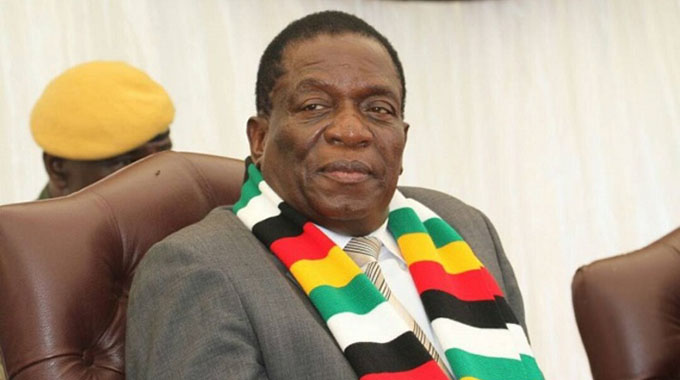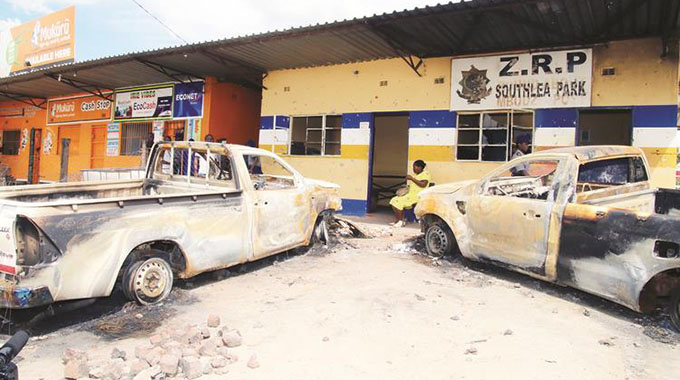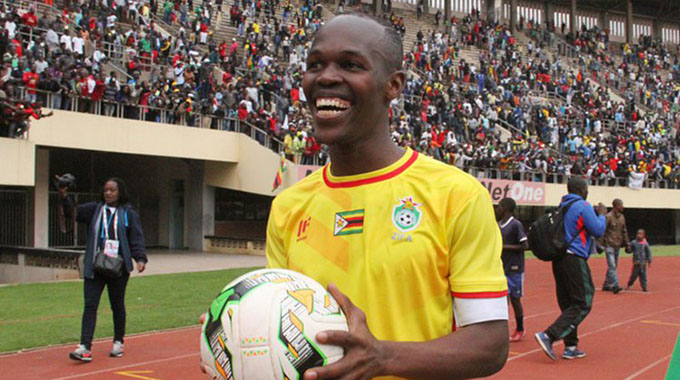Understanding Zim’s past, shaping the future

Andrew Maimba Correspondent
The challenges bedevilling Zimbabwe are a product of the past (1999 -2017), and the current political leadership (including the opposition) must work towards liberating Zimbabweans, so that they are not prisoners of that past. The following events, and not Operation Restore Legacy and the 2018 harmonised elections results, got Zimbabwe to where it is today.
Understanding the past
In the zanu-pf manifesto for the 1995 General Elections, zanu-pf amplified the provisions for benefits of war veterans. In August 1997, the Government announced a new compensation and pension plan for about 60 000 war veterans, which saw each ex-combatant get a gratuity of $50 000 (about US$4 500 then), and monthly pension of roughly US$174. However, all this money, which the Treasury had not budgeted for in that year, led to the infamous Black Friday of November 14, 1997, which saw the Zimbabwean dollar tumbling against the United States dollar, when Government finally honoured its pledge.
The total package paid to the war veterans amounted to approximately 3 percent of the 1997 GDP; and it was not included in the 1997 Budget. The payments resulted in a 55 percent budget deficit. In December 1998, Zimbabwe’s standing line of credit with the World Bank was suspended. This marked the beginning of the economic woes for Zimbabwe, as the Zimbabwean dollar lost 75 percent of its value against the US dollar.
On August 19, 1998, a meeting of SADC leaders was held in Harare where Angola, Namibia and Zimbabwe committed to assist Laurent Kabila’s government in line with an OAU resolution.
The Zimbabwe Defence Forces would launch SADC Operation Sovereign Legitimacy between 1998 and 2002. During that war, the US government was supporting the rebels, which were SADC Allies’ enemies, and as the rebels were defeated, the US influenced Western donors — including the International Monetary Fund and the World Bank — to review aid programmes to Harare, denying the Government a previously guaranteed aid package valued at US$600 million. This put further a strain on the Zimbabwean economy.
Further, the zanu-pf Election Manifesto for the General Elections of 1995 undertook to press forward with the land reform programme where the party directed Government to resettle indigenous people on 3,4 million hectares that it had acquired from white commercial farmers.
The “costly mistake” ever to be made by the white farmers was the widely publicised event, were just after the formation of the MDC in 1999, ZBCTV showed a video of Morgan Tsvangirai gleefully clapping hands as white farmers jostled to sign cheque donations to the newly formed party.
In brief, the negative results of the land reform include the imposition of sanctions under the guise of human rights violations and lack of compensation to white farmers, but are really a tool for teaching other African states a strong lesson that no land must be taken from beneficiaries of colonialism without compensation. Because of the land reform, Zimbabwe became isolated from the international community.
As the pressure on the Zimbabwean dollar persisted, forex reserves dropped to critical levels. Gideon Gono, the then Reserve Bank of Zimbabwe Governor, began to engage in quasi-fiscal activities and introduced import controls and banned foreign currency accounts (FCAs).
The banning of the FCAs led to a situation where the RBZ began to retain all export proceeds, creating an opportunity for corruption in the control and allocation of the scarce forex reserves.
As the economy was struggling, former president Mugabe became fixated on consolidating his power.
Factionalism began eating into the party. Elected members of district and provincial structures were being expelled to facilitate the takeover of party leadership by former First Lady Grace Mugabe.
Those who raised concerns over Mugabe’s leadership were persecuted. The corruption created an oligarchy which has built large houses and drives expensive cars and are frequently out of the country to spend money. The neglect of Government business affected service delivery. All of this put together has cost the country further in stolen resources, opportunities and time wasted.
Zimbabwe is largely a spiritual country, with most practising Christianity blended with African religion. During the Second Chimurenga, the freedom fighters would consult traditional leaders and would be guided. There is a belief that there are certain rituals that need to be done to thank the ancestors and to correct certain wrongs emanating from the pre- and post-Chimurenga period. The failure by Government to address the spiritual issues said to be outstanding has often been cited as the reason why the once peaceful nation is turning against itself.
There is no doubt an economic warfare that has been waged by certain Western countries together with the US government against Zimbabwe is on. Zimbabwe is endowed with resources that are not available in the West and in the US and the policies of zanu-pf, which are pro-Zimbabwean people, have made these resources difficult to access by the West, hence they prefer a Western inclined regime, in the form of the MDC.
This is why it is not difficult to find a relationship between the MDC as a party as well as its leaders, and sanctions, for example, ZDERA. The country is under trade, economic, financial, undeclared sanctions as well as arrears-triggered penalties. Balance of payments, lines of credit and also foreign direct investment have been prohibited or minimised and the effects are not “targeted”, as claimed by opposition elements, but are felt across vulnerable groups and the entire economy, hence their maintenance for as long as zanu-pf is the governing party.
This argument can be supported by the fact that when Morgan Tsvangirai was Prime Minister, he called for the lifting of sanctions, while he was in Australia in July 2012 where he stated: “I think there is justification for the international community to remove the sanctions because I think they’ve outlived their usefulness.” Soon after losing the Presidential election in 2013, he started advocating for their imposition again, indicating that the sanctions are meant to turn the people against the Government in order for a pro-Western opposition to be in power.
Shaping the future
The fundamentals required to get Zimbabwe back on its feet, regardless of who is President, or which is the ruling party, are:
(i) Opening up of democratic space
(ii) Upholding of the rule of law
(iii) Fighting corruption
(iv) Re-engagement with the international community in an effort to attract investors, FDI and reopening lines of credit
(v) Enhancing agricultural and industrial production for domestic consumption and export
(vi) Reducing the deficit between imports and exports
(vii) Reducing Government expenditure
(viii) Enhancing productivity within the public service
(ix) Abandoning electoral results disputes and unwarranted mass action.
Since taking control of the levers of State, President Mnangagwa has worked towards getting Zimbabwe back on its feet. The Nelson Chamisa-led MDC Alliance cannot afford to let him succeed if they are to remain a political option for Zimbabwe. This is the reason why they have formulated the “jecha” policy, to sabotage the President’s efforts, and the more they allow the President to work, the quicker Zimbabweans will realise that he (President Mnangagwa) is working towards improving the lives of the people.
This is why from December 2018, MDC-Alliance leaders such as Nelson Chamisa, Tendai Biti, Chalton Hwende, Patson Dzamara, Doug Coltart and Happymore Chidziva have taken to social media threatening to make the country ungovernable in 2019.
MDC lost the local authorities, National Assembly, Senatorial and Presidential elections and they have to wait for 2023 to have another shot. They need to give President Mnangagwa a chance to sort out a situation created over 21 years.
The challenges we are facing cannot be sorted out in a year, no matter who is the President.










Comments